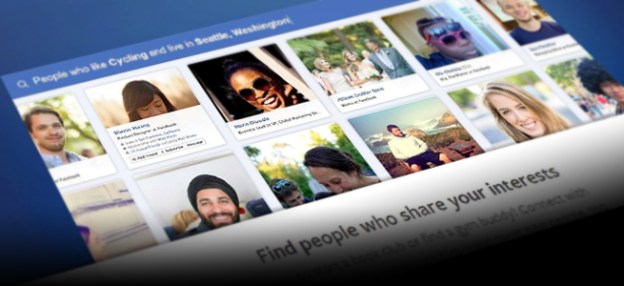
You’ve probably heard of Facebook’s new feature, Graph Search. Allowing you to search for combinations of people, places, and things through Facebook, Graph Search grabs headlines because it’s Facebook’s real foray into the search engine world. It’s a sexy topic because it focuses on people – you’re part of the search results – which can embarrass you, get you in trouble, or get you engaged, depending on how it’s used and how your profile looks. But it’s not the only thing cooking for Facebook’s search team – the social media giant is also cobbling together another search tool it calls the Entity Graph.
What’s an Entity Graph?
The Entity Graph has an even wider scope than Graph Search. It’s kind of a combination of Google Search and Wikipedia – a largely user-generated, searchable trove of encyclopedic knowledge. While Graph Search hones in on people and their interests on Facebook, Entity Graph sketches out how everything relates to each other. It’s more pragmatic, but it’s just as essential to Facebook’s plans to dominate the search game.
The MIT Technology Review took a closer look at this fledgling catalog, talking to Facebook product manager Mitu Singh about the project’s goals. As Singh explained to journalist Tom Simonite, “We’re trying to map what the real world looks like onto Facebook so you can run really expressive and powerful queries.”
So instead of using language alone, Entity Graph takes advantage of context to create a smarter search, more grounded in how people actually relate to things.
Facebook is encouraging users to contribute the the Entity Graph in subtle ways. It asks them to double-check that they’ve entered a location correctly, or nudges them to tag duplicated content. It asks locals to fill in the blanks about their neighborhood haunts, and enthusiasts to bulk up details about their favorite hobbies, entertainment, or sports. Lots of information comes from fan pages, while other data gets culled from outside sources.
But how do users benefit?
If the Entity Graph works correctly, Facebook’s search will work better – much better. When you look for a McDonald’s near your work or school, data collected from the Internet and from Facebook users will provide more accurate answers. Instead of leaving Facebook to look up something like museum hours or the tastiest ice cream in your city, if Entity Graph works, you can just use Facebook as your search engine.
If you’re fed up with Google, this will definitely provide an interesting alternative, though there’s no saying whether it will be better or worse. Google is working on a program called Knowledge Graph with similarities to Entity Graph, so both companies are striving to connect digital search to the real world and real-world language more closely.
Does this have something to do with selling ads?
Of course. Facebook has been on a mission to monetize, and there’s no way it would undertake such a massive endeavor without some sort of angle that will keep investors and ad partners happy. Yes, Entity Graph may make the user experience better, but it could also lead to additional opportunities for targeted ads and marketing.
Even though the search is in its infancy, PR agencies are already advising brands to optimize their social media presence to fit better with the graph. And since the Entity Graph only works if people voluntarily input information, it cajoles Facebook users to more frequently pinpoint their whereabouts and preferences. And more personalized information means more opportunities to fine-tune ads.
The Entity Graph is an interesting endeavor, but Facebook’s decision to follow Wikipedia’s user-generated content model for its information may be complicated if people feel like their information is used to boost ads instead of improve the search. And by “complicated,” we mean everyone will throw a temper tantrum.
Editors' Recommendations
- Facebook, Google, Microsoft, and Twitter team up to fight election interference
- Amazon, Apple, Facebook, and Google will testify before Congress in July
- Facebook map shows you where people are reporting coronavirus symptoms
- Why a deepfake ban won’t solve Facebook’s real problems
- You will soon be able to migrate your Facebook photos and videos to Google Photos


